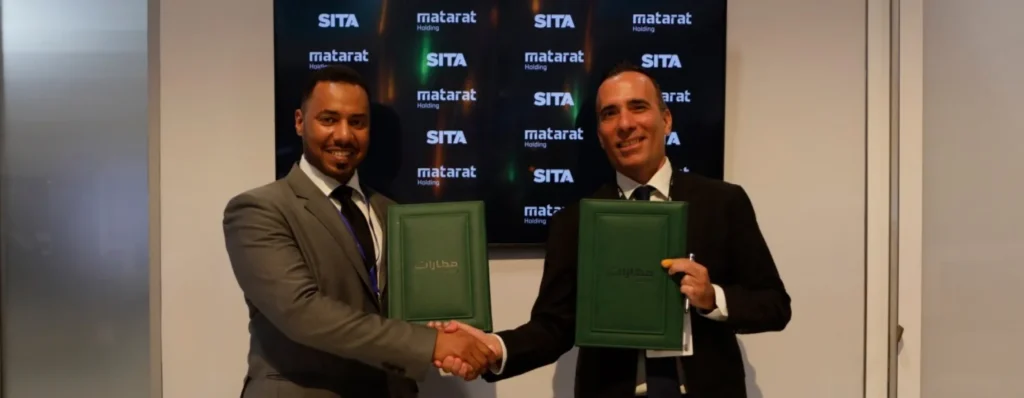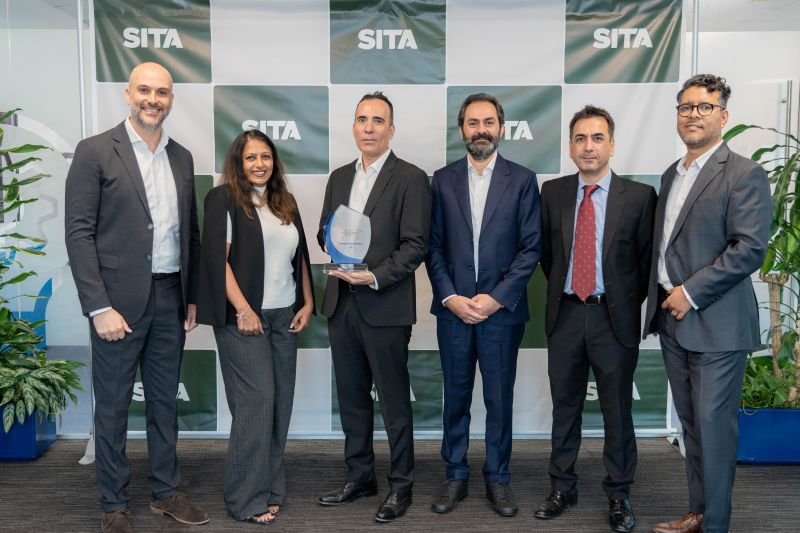Airport innovation in Saudi Arabia is getting a major boost after Matarat Holding Company signed a Memorandum of Understanding (MoU) with global tech leader Thales. The agreement aims to transform airport operations and enhance passenger experiences across the Kingdom.
The MoU was signed during the Future Aviation Forum 2025 held in Riyadh, one of the region’s most prominent aviation events. With the aviation sector playing a key role in Saudi Arabia’s Vision 2030 strategy, this move signals the country’s growing commitment to cutting-edge technology and world-class passenger services.
Who Are the Players: Matarat and Thales
Matarat Holding Company, previously known as the Saudi Civil Aviation Holding Company, is a government-owned organisation responsible for managing and operating airports across the Kingdom. The company plays a critical role in modernising Saudi Arabia’s aviation infrastructure.

On the other hand, Thales is a French multinational with decades of experience in aerospace, defence, and digital security. The company offers advanced solutions in airport security, air traffic management, biometrics, and smart technologies.
Together, these two major players are set to drive forward the next generation of airport infrastructure in Saudi Arabia.
What the MoU Covers: Smart Tech and Better Travel
The partnership will focus on developing innovative airport solutions that align with Saudi Arabia’s goals for smart cities and digital transformation.
Key areas of collaboration include:
- Biometric technologies for seamless and secure passenger journeys
- Smart airport systems to reduce delays and improve operational efficiency
- Cybersecurity frameworks to protect digital infrastructure
- Passenger experience upgrades through personalised services
This multi-dimensional agreement highlights the Kingdom’s vision of becoming a global aviation hub powered by cutting-edge innovation.
Focus on Passenger Experience
A major part of the deal is centred on enhancing the passenger journey — from the moment a traveller enters the airport to the time they board their flight.
The idea is to use biometric verification and AI-driven processes to cut down on waiting times, improve security checks, and personalise services based on traveller preferences.
Thales is expected to bring its advanced systems that are already being used in airports across Europe, Asia, and the Middle East to Saudi airports.
Supporting Vision 2030 and the Aviation Strategy

Saudi Arabia’s Vision 2030 aims to diversify the economy and reduce its dependence on oil. As part of this vision, aviation is identified as a major growth sector.
With plans to attract over 100 million tourists annually by 2030, the country is investing heavily in airport infrastructure, including the development of King Salman International Airport in Riyadh — which will become one of the largest airports in the world.
This agreement with Thales supports these ambitions by creating smart, secure, and efficient airports that can handle increasing passenger volumes.
Statements From Both Sides
At the signing ceremony, Eng. Mohammed Al-Maghlouth, CEO of Matarat Holding, said:
“Our partnership with Thales is a crucial step in improving the services provided in Saudi airports. We are moving towards smarter, safer, and more efficient airport environments.”
Pascale Sourisse, Executive Vice President of Thales, added:
“We are proud to support Saudi Arabia’s aviation goals. Together with Matarat, we aim to deliver sustainable and intelligent airport solutions.”
How This Deal Benefits Travellers
This deal is more than just a technical collaboration — it’s a step toward making travel smoother and more enjoyable for millions of passengers.
Benefits for travellers may include:
- Faster security checks using facial recognition
- Shorter wait times at baggage and boarding gates
- Real-time updates and personalised services via smart apps
- A more comfortable, connected, and stress-free airport experience
Thales: A Global Leader in Airport Technology
Thales has worked with some of the world’s busiest airports, including those in Paris, Singapore, and Dubai. Its systems are known for their efficiency, reliability, and security.
In Saudi Arabia, Thales already operates several major technology projects, including air traffic control systems and aviation training programmes. This new MoU builds on that strong foundation.
What This Means for Saudi’s Aviation Future
This agreement could be the first of many tech-driven initiatives to transform Saudi airports into global benchmarks for innovation and excellence.
It also reflects the growing international interest in Saudi Arabia’s aviation and tourism sectors, with global firms like Thales eager to be part of the Kingdom’s transformation.
What’s Next: Implementation and Rollout

While the MoU sets the direction for collaboration, the next steps will include detailed planning and rollout across the 26 airports under Matarat’s management.
Each phase will likely include pilot programmes, training of airport staff, integration of new technologies, and monitoring of outcomes to ensure quality improvements.
The success of these projects will play a big role in positioning Saudi Arabia as a top-tier travel destination and a model for future airport innovation worldwide.
Conclusion: A Win for Saudi Arabia and the World
The partnership between Matarat and Thales is a strategic leap toward the future of airport innovation in Saudi Arabia. It aligns with global trends in smart mobility and puts the Kingdom on the map as a leader in next-generation aviation.
As Saudi Arabia continues to open its doors to the world, these kinds of tech-forward initiatives will ensure that every traveller’s experience is smooth, secure, and enjoyable.
Read More: Port of Fujairah Digital Overhaul Begins with Endava













